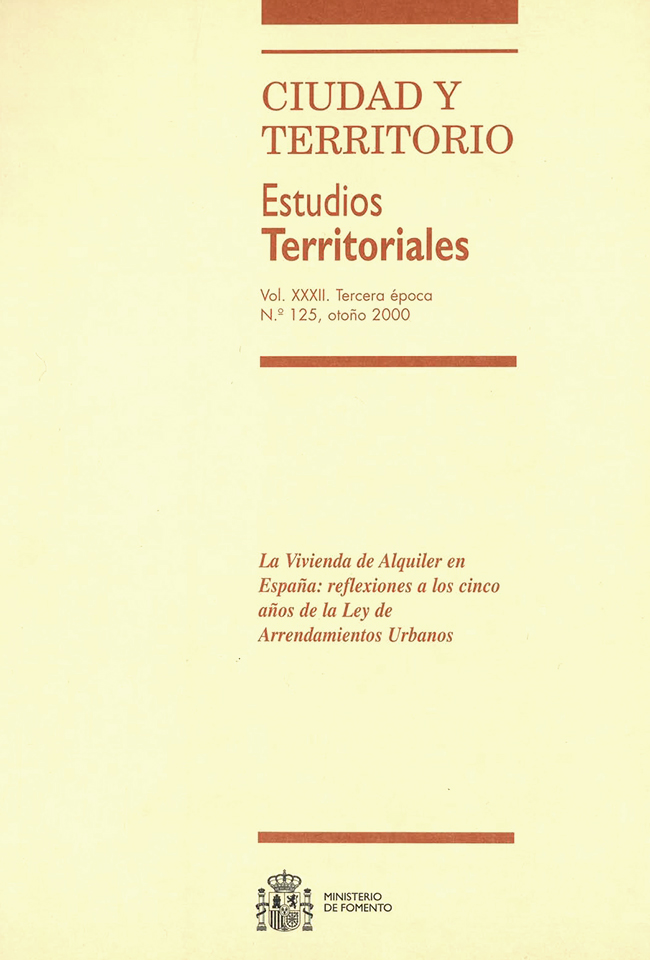The Renting out of Public Housing
Keywords:
Ley de Arrendamientos Urbanos, Viviendas de Protección Oficial, Viviendas en alquilerAbstract
The paper explains how the Housing Rentals Act of 1994 brought radical change to the renting out of public housing as this has hitherto been excluded from such legislation. Public Housing now came under the Act with only a few express and very concrete exceptions. The status of the contract for such activities is now determined by the date at which it was drawn up, those that were so prior to said Act are still to be encompassed by the specific terms and amendments of the earlier Act of 1964, those drawn up after the new act are to be preferably subject to its rulings as such or, these giving rise to contradictions or running contrary to agreements still within the scope of its to stipulations, to the special circumstances said act contemplates. The Act sets a shorter term on the period for which public housing can be defined as such, puts an end to illegal renting stipulations and discourages eviction.Downloads
Downloads
Published
How to Cite
Issue
Section
License
Copyright (c) 2000 Joaquin Barda Pereiro

This work is licensed under a Creative Commons Attribution-NonCommercial-NoDerivatives 4.0 International License.
Considering the provisions of the current legislation on Intellectual Property, and in accordance with them, all authors publishing in CyTET give -in a non-exclusive way and without time limit- to the Ministry of Transport, Mobility and Urban Agenda the rights to disseminate, reproduce, communicate and distribute in any current or future format, on paper or electronic, the original or derived version of their work under a Creative Commons Attribution-NonCommercial-NoDerivative 4.0 license International (CC BY-NC-ND 4.0), as well as to include or assign to third parties the inclusion of its content in national and international indexes, repositories and databases, with reference and recognition in any case of its authorship.
In addition, when sending the work, the author(s) declares that it is an original work in which the sources that have been used are recognized, committing to respect the scientific evidence, to no longer modify the original data and to verify or refute its hypothesis. Author(s) also declare that the essential content of the work has not been previously published nor will it be published in any other publication while it is under evaluation by CyTET; and that it has not been simultaneously sent to another journal.
Authors must sign a Transfer of Rights Form, which will be sent to them from the CyTET Secretariat once the article is accepted for publication.
With the aim of promoting the dissemination of knowledge, CyTET joins the Open Journal Access (OA) movement and delivers all of its content to various national and international indexes, repositories and databases under this protocol; therefore, the submission of a work to be published in the journal presupposes the explicit acceptance by the author of this distribution method.
Authors are encouraged to reproduce and host their work published in CyTET in institutional repositories, web pages, etc. with the intention of contributing to the improvement of the transfer of knowledge and the citation of said works.








 Enlace a CyTET en Linkedin
Enlace a CyTET en Linkedin